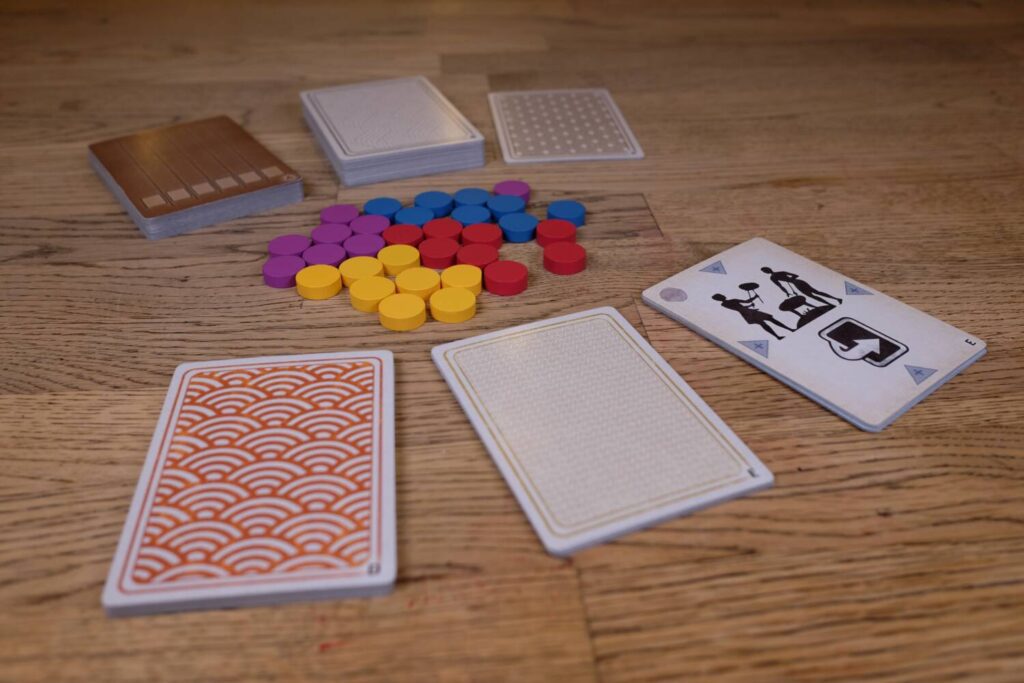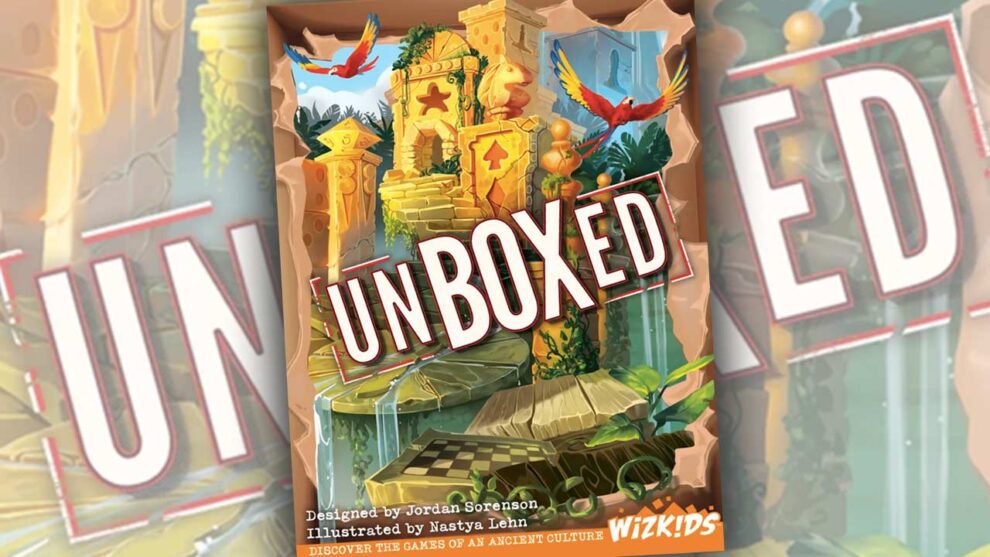Disclosure: Meeple Mountain received a free copy of this product in exchange for an honest, unbiased review. This review is not intended to be an endorsement.
There’s nothing quite like the particular feeling that comes from seeing people enjoy the fruits of your personal labor. If you knit, or cook, or fix up old cars, you know what I’m talking about. There’s a warmth in experiencing the joy of others and knowing you did that. The hours you spent crocheting that hat were worth it, because it’s keeping your friend’s head warm. You were worried you added too much paprika, but look how much everyone is enjoying the cream chicken.
It doesn’t even need to be something that serves the joy of other people. Maybe you make your own furniture, or you paint watercolors you’re never going to show anybody else. The making of things is a deeply personal experience, and probably our best way of proving to ourselves that we exist in this world. We need it.
The Promise of the Premise
Unboxed, from designer Jordan Sorenson and publisher WizKids, has a marvelous premise. You play as archeology students on a dig who have come across the remains of a series of ancient games. Given nothing but a (miraculously) complete set of components and a few hieroglyphics, you are tasked as a group with figuring out how exactly these games were played.
Isn’t that wonderful? I was enamored with it from the moment the game was announced.
This premise manifests as a series of ten puzzles. Each is presented in the rulebook as a list of components, a card or two of hieroglyphics, and a series of guiding questions. “What does setup look like?” “What do players do on their turn?” These sorts of things. If you get stuck on any of those questions, there are corresponding numbered hints in a different section of the booklet. To gamify the experience, there are hint tokens you can use to check hints, resulting in a lower score for the group, but my play groups have never even considered using them. We’ve never once calculated a score. We have experienced Unboxed as what it is, an escape room game.
The puzzles can, admittedly, be a mixed experience. Because you are working with such relatively loose instructions and guidelines, it’s easy to interpret something slightly differently than was intended, but in a way that sends you off on entirely the wrong path. If you hate being wrong, this may not be your bag. On the other hand, having both played and observed as others played, there is something wonderful about a group talking through the possibilities, trying something that doesn’t quite work and then trying something else. Many years ago, a friend was struggling for several moments to come up with the correct way to say something in French. When he arrived at the solution, he said, “The thing about French is, when you get it right, the sentence feels correct.” Unboxed is no different. It helps, truly, that all of the games here feel right once you’ve got the right solution.

Content Dictates Form
Sorenson and the development team at WizKids deserve all the credit in the world for what they’ve done here. Using fairly limited, and even overlapping, materials, they’ve filled this tiny box with ten very different games that all feel believably ancient while still being entertaining.
Are you going to want to play any of these games again after you’ve finished Unboxed? If you’re an adult, then probably not. It is easy to imagine a number of these games as having always existed, but it is a simple fact that they haven’t always existed, and therefore they don’t ring the bell of nostalgia that makes a game like mancala worth returning to. If you were to guide a child through the Unboxed experience, though? They very well might return to these games again and again.
There’s something intangibly wondrous about playing a game for which you just figured out the rules. Even the simplest of these designs—the last few get surprisingly complex—is imbued with a sense of the magical, because you figured out how it works. To that end, Unboxed can be played solo, but please don’t. This is meant to be played with a group. You’re meant to figure out the rules and then play the game, and just about all the games are better with three or four players than they are with two. None of them work with one.
During my time with the game, I found myself thinking about, god forgive me, the universality of the human experience. I would imagine an unknown child three or four thousand years in the past, playing the same game my friends and I were now enjoying, laughing just like we were. There’s no language on the cards. How incredible would it be to play this with somebody who doesn’t speak any of the same languages you do? Isn’t that, ultimately, the beauty of these types of games? How many new releases make you think about all that?
Unboxed is wonderful. It offers an experience I’ve never seen before, and it taps into so many enormous ideas that I’m amazed they could fit it all into this one tiny box. I haven’t seen anyone walk away from a round without a smile on their face. This is a love letter to games and game design, to the people who played games before, are playing games now, and will play games in the future.












Oh my. If this game is even half as beautiful as your review, it is a must have for me.
Thanks so very much.
That’s very kind of you to say, David! I think it is a wonderful experience, and the best part is that you can readily pass it on to someone else when you’re done.